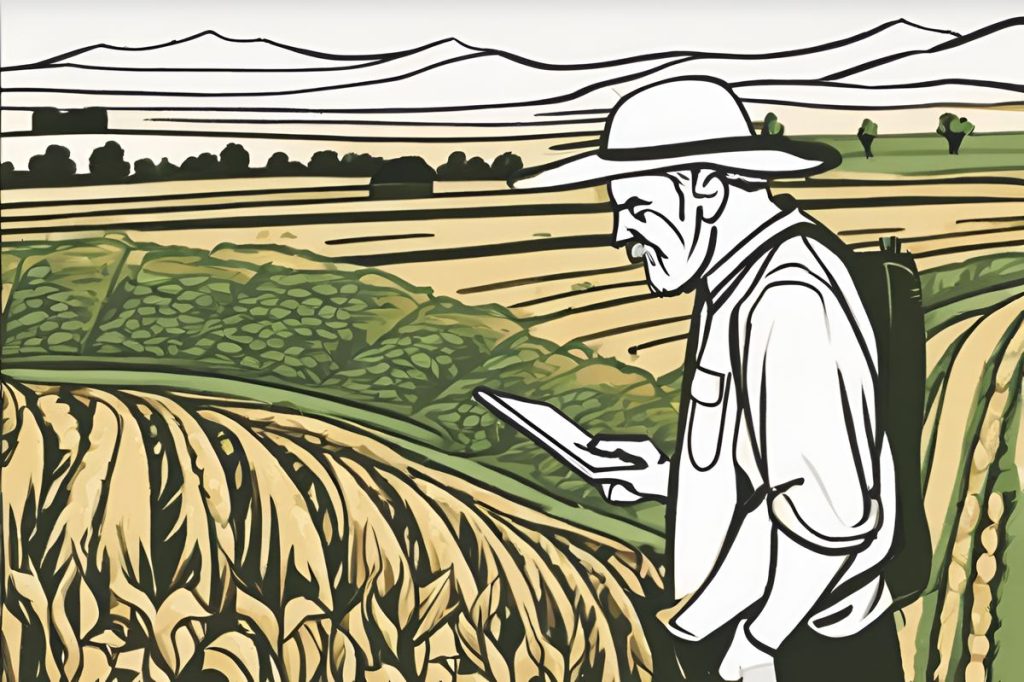Smart agriculture is transforming Cyprus’s farming landscape through innovative technologies like precision farming and IoT devices, leading to job creation and economic growth. With a €10 million investment and initiatives introduced by Minister Maria Panayiotou, this movement is empowering a new generation of tech-savvy farmers and fostering a sustainable, self-sufficient food system.
What is Smart Agriculture and how does it contribute to economic growth?
Smart agriculture integrates innovative technologies like precision farming and IoT devices to optimize crop yields, ensure sustainability, and boost economic growth. It creates jobs, fosters a self-sufficient food system, and positions countries as leaders in agricultural innovation, marking a renaissance for the primary sector.
The Dawn of Techno-Farming
In an ambitious move to revitalize the primary sector and swell the national GDP, a slate of eleven innovative actions were ratified by the government. The minister at the helm of agricultural affairs, Maria Panayiotou, outlined the government’s updated game plan which pivots on deploying new technologies and espousing smart agriculture. These actions aren’t just buzzwords; they’re concrete steps towards a future where farming is less at the mercy of unpredictable weather patterns and more in the hands of tech-savvy, youthful agrarians.
A synergistic effort to buttress this vision sees the bridging of the producer-consumer price divide. By tapping into the wellspring of academic research, fostering collaboration between producers, and underpinning the entire agricultural framework with robust support mechanisms such as training, financing, and enhanced water resource management, the initiative promises a seismic shift in the agricultural landscape.
Investment in Growth
The talk of investment isn’t just hot air; there’s a €10 million purse string that’s been untied, earmarked for the very strategies being championed. This program, set to run until the tail end of November, encapsulates the spirit of the government’s strategy. Only a few days past, Agrocyprus, an entity that’s been brought to life, stands at the ready to champion the marketing of domestic agricultural produce. Its goals are noble and straightforward: bridge pricing gulfs, cultivate a cooperative ethos among growers, and usher in a new era of market transparency and active engagement.
Panayiotou’s words carry a weight of optimism, as she speaks of a seminal moment for Cypriot agriculture. It’s a call to arms, or rather, to fields, where the sector’s trajectory is poised for an uptick in growth and influence on the broader economic stage.
Technology Meets Tradition
The interplay of tradition and technology is at the heart of this transformative strategy. Smart agriculture isn’t just about high-tech gadgetry; it’s about integrating innovative practices that elevate the quality of the produce while ensuring sustainability. Such advancements may include precision farming techniques that use data analytics to optimize crop yields and resources, or the implementation of IoT (Internet of Things) devices to monitor and manage agricultural environments more efficiently.
Moreover, the push for smart agriculture is set to ripple beyond fields and into the economy, with the potential to create new jobs in tech, logistics, and marketing sectors. The ripple effect could be substantial, fostering a healthier, more self-sufficient local food system and positioning the country as a leader in agricultural innovation.
Fostering the Next Generation
The future of agriculture hinges on the next generation of farmers. By incentivizing youth participation and ensuring a stable income for these young pioneers, the strategy aims to inject vitality into the sector. Education and empowerment are pivotal, with ongoing training to equip these individuals with the skills needed to navigate and lead in this new agricultural era.
In essence, the growth of smart agriculture is synonymous with the growth of the nation’s economy. With a steady hand guiding these initiatives, the primary sector in Cyprus is on the cusp of a renaissance, one that embraces the future while nurturing the roots of its past.
“`markdown
What is Smart Agriculture and how does it contribute to economic growth?
Smart agriculture refers to the integration of innovative technologies such as precision farming and IoT devices in farming practices. This approach aims to optimize crop yields, ensure sustainability, and foster economic growth. By creating jobs and fostering a self-sufficient food system, smart agriculture positions countries as leaders in agricultural innovation, marking a significant renaissance for the primary sector.
What initiatives have been introduced to support Smart Agriculture in Cyprus?
In Cyprus, Minister Maria Panayiotou has announced a comprehensive strategy that includes eleven innovative actions to revitalize the agricultural sector. This strategy emphasizes the use of new technologies and smart agriculture practices to mitigate the impact of unpredictable weather and enhance productivity. It also focuses on bridging the producer-consumer price gap and strengthening support mechanisms such as training, financing, and improved water resource management.
How is the €10 million investment being utilized in the agricultural sector?
A €10 million investment has been allocated to support the strategies championed under the smart agriculture initiative. This funding is directed towards enhancing domestic agricultural production and marketing, with entities like Agrocyprus established to improve market transparency and cultivate cooperation among farmers. The investment aims to empower local farmers and drive economic growth in the sector until the end of November.
How does smart agriculture encourage the participation of the younger generation?
The strategy for smart agriculture actively encourages youth participation by providing incentives and ensuring stable income opportunities for young farmers. Ongoing training and educational programs are integral to this initiative, equipping the next generation with the necessary skills to thrive in a tech-driven agricultural environment. This focus on youth engagement is crucial for injecting vitality into the sector and securing its future sustainability.
“`

